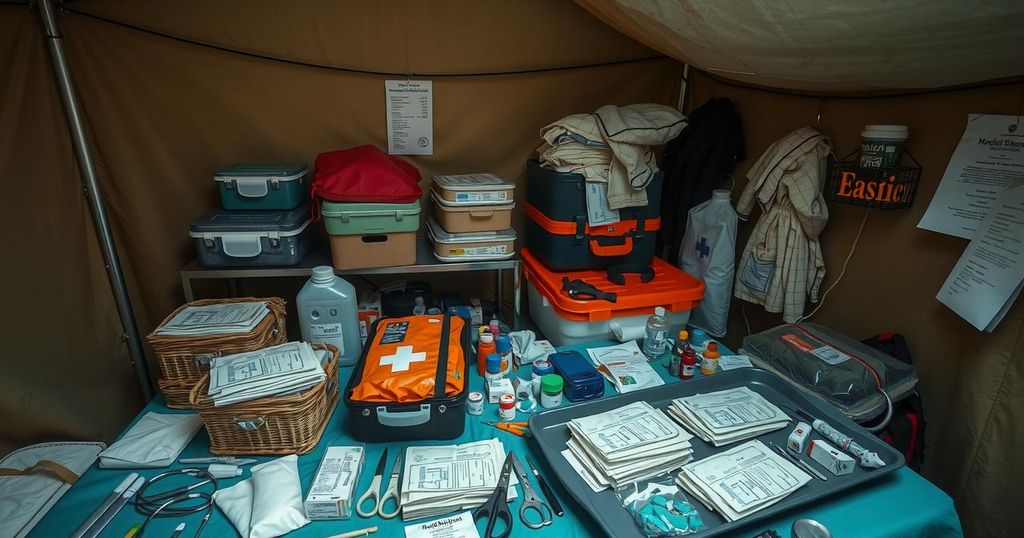In war-torn Sudan, hunger and economic collapse have forced many into dependence on soup kitchens, primarily funded by U.S. aid. The suspension of USAID has drastically affected these operations, exacerbating the humanitarian crisis. Medical staff, such as Dr. Jamal Mohammad, continue to provide critical care despite severe shortages. Former diplomat Jesseye Lapenn warns of the long-term consequences of aid withdrawal, while the U.N. calls for urgent funding to address the escalating hunger crisis.
In war-torn Sudan, hunger is pervasive as countless individuals, particularly those in conflict zones, face severe famine. Central urban areas, such as Omdurman, now host soup kitchens where even well-off professionals seek food handouts, indicating the stark erosion of the middle class. Mohammed Hamad, once an electrical engineer, now finds himself reliant on charity to support his family due to the economic collapse brought on by the civil war.
The soup kitchens, which provide scarce daily meals, are predominantly funded by the United States. However, following President Trump’s suspension of foreign aid, approximately 80% of these establishments ceased operations. Hospitals like Al Noa, the largest in Omdurman, rely on these kitchens to serve their patients, as the hospital itself lacks the funds for meals.
Al Noa hospital has endured multiple missile strikes during the ongoing war, leaving it overcrowded and under-resourced. Patients often receive medical attention on the floor due to a shortage of beds. Dr. Jamal Mohammad leads a team striving to care for wounded individuals despite extreme shortages of necessary medical supplies and equipment, exacerbated by the halting of U.S. aid.
Former U.S. Ambassador to the African Union, Jesseye Lapenn, expressed concerns about the end of support for USAID in countries like Sudan, which she views as representing American values. She contends that withdrawing assistance will undermine U.S. interests globally and detrimentally affect partnerships, compelling countries to seek alternatives such as trading natural resources to fill financial gaps.
Furthermore, the United Nations has called for an unprecedented $6 billion in emergency funding to address the worsening hunger crisis in Sudan, which has escalated even further compared to last year. This crisis has led to warnings from Cindy McCain, head of the U.N. World Food Program, emphasizing the urgent necessity for global intervention.
Despite the gravity of the situation, the resilience of Sudanese medical staff remains evident. Dr. Jamal Mohammad continues his unwavering dedication to saving lives amidst the chaos. He performed a successful surgery on a young boy, Akram, who suffered severe injuries from shrapnel. This operation symbolized a beacon of hope in a landscape filled with despair and hardship.
Dr. Mohammad articulated his commitment, stating, “It’s my oath…to save lives.” His determination to assist the wounded in his war-torn nation highlights the profound challenges faced by medical professionals in Sudan today.
The humanitarian crisis in Sudan has reached alarming proportions as war has devastated the economy and increased reliance on aid. With U.S. foreign assistance suspended, the viability of hospitals and food distribution centers is in jeopardy. The stories of individuals like Mohammed Hamad and Dr. Jamal Mohammad illustrate the dire reality faced by many. International intervention is urgently needed to mitigate the escalating hunger catastrophe and support the medical efforts that continue against formidable odds.
Original Source: www.cbsnews.com




